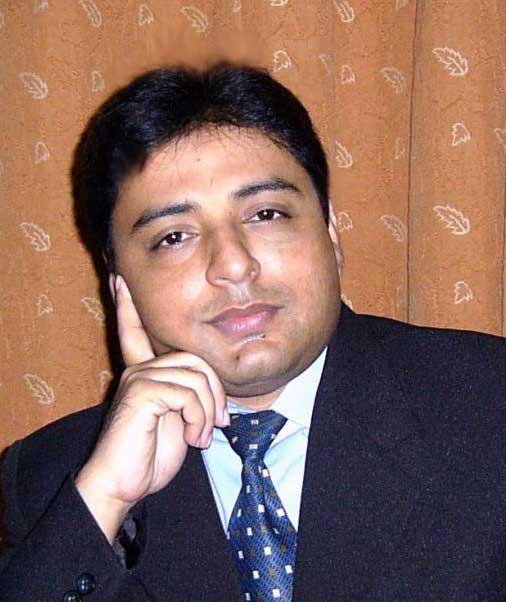Rudyard Kipling says, “God could not be everywhere, and therefore he made mothers.” Such words of veneration for the mothers are, decidedly, soul-elevating and encapsulate the inordinate vastness and unfathomable depth of the concept and status a mother enjoys in the minds of all and sundry, hailing from all the corners of the universe. However aged, experienced, mature and brave one may be, the first thought, word and image emerges in his mind, in the moment of distress, would definitely be “Mother”. The Almighty orders us to take best care of our parents and, especially mothers, in these words:
“And, in fact, I myself has advised the man to regard the rights of his parents. His mother underwent painful moments and poor health to keep him in her womb, then, he took two years to stop living on mother feeding. It is why I advised him to be grateful to me and thankful to his parents” (Surah-e-Luqman-Ayah14).
“Mother: a Manifestation of Divinity” was the title of my first essay in connection to the Mothers’ Day that I penned down for a leading English daily, in 2007. Since then, I have contributed for many newspapers, magazines and tabloids, in this regard, and have tried my level best to produce something substantive and to portray something reasonably or, at least, satisfactorily depicting a true image of a mother. Truly speaking, after every attempt, and every passing year, I kept on realising that my writings are void of any depth, quality and, above all, knowledge and understanding of the real persona of a mother. With every passing day of my life, and especially after being a parent of two kids, I have been coming across new dimensions of and revelations about the status of the motherhood and its unusual spirit and awe. If you have a cursory glance at the history of mankind and the contemporary society around you, you will be reality-bound to acknowledge how an ordinary, playful, pampered and self-centered girl turns into an extraordinarily mature, brave, enduring, sacrificing, sagacious and, above all, a judicious mother within a few months. It is a miracle. Isn’t it?
We, the Oriental folks, do not look forward to a specific day to greet our mothers, or to serve them, throughout the year, but our typical morning starts with visiting her room to greet her. We say good-bye to her and request her for prayers before leaving for work and business, at the dawn, and see her first after arriving home from the job place. The significance of looking after one’s mother with care and kindness, in islam, has been declared to be more than Jihad as stated in hadith: A man came to Allah’s Messenger (Peace Be Upon Him) and said: “O Messenger of Allah! I want to go out and fight (in Jihad) and I have come to ask for your guidance.” He (PBUH) said: “Do you have a mother?” He said: “Yes.” Prophet (PBUH) said: “Then stay with her, for Paradise is beneath her feet.” (Sunan Nisai)
It is a divine wonder that the syllables and lexes used to address and call this unique human relation are adhered to a worldwide uniformity. The epithets like ‘Maan’, ‘Mom’, ‘Mother’, ‘Mummy’, ‘Ammi, ‘Umm’ Amman’, and ‘Maata’ are from English, Urdu, Arabic, Persian and Hindi socio-lingual backgrounds, and reflect a very soul-elevating universality amongst them, concerning human existence and the creation of man. Mother is the closest and the earliest affinity of a man and the first sound— the sound of “m”—a child produces, naturally, is attributed to his mother.
There are innumerable and immeasurable holy commandments, epigrams, sayings, anecdotes, literary writings, poetic compositions and proverbial sayings about the sacred esteem of mothers, and one cannot even dare to go through such profound treasures, I would love to relate my zealous and passionate feelings associated with globally admired poet, writer and teacher Anwer Masood’s immensely popular and appreciated Punjabi Poem titled “Ambri” (Mother). Whenever I listened to it, in the poet’s own trembling voice, in any TV show or video clip, I could not control my tears, and same is the case with nearly all the people who experienced it.
Shedding light on the background of this real incident, Mr. Masood relates, “That time, I was serving as a school teacher at a town known as Kunjah, in the district of Gujrat (Punjab). One fine morning, one of my students called Bashir came really late and I was furious and about to punish him when he said: ‘Master Jee, first listen to me as to why I am late?’ Then he continued, ‘Sir, Akram (another student of mine) has crossed all the limits today, and has beaten his mother so hard that when she came to our home, she was bleeding and her face was swollen. Instead of complaining, she brought his lunch with her and asked me to hand it over to him in the class because he had run in anger from his home earlier in the day without eating anything. His mother was so worried about her son going hungry and she was continually insisting on me to go as fast as I could because her son might be starving.’ After this incident, I couldn’t sleep for a couple of nights, I tried to write this incident in a poem, but failed in my first endeavour. As there was so much pain and an immense level of Mamta (passion of motherhood) was involved in that case, I could not find any words to describe these feelings. But I did not give up. Finally, it took me ten years to mould this heartrending episode in the form of a poem.” The below-cited English version of the poem will really enlighten your mind with the infinite horizon of mother’s passion for sacrifice, selflessness and dedication to her issues.
Mother is a miracle of the nature



